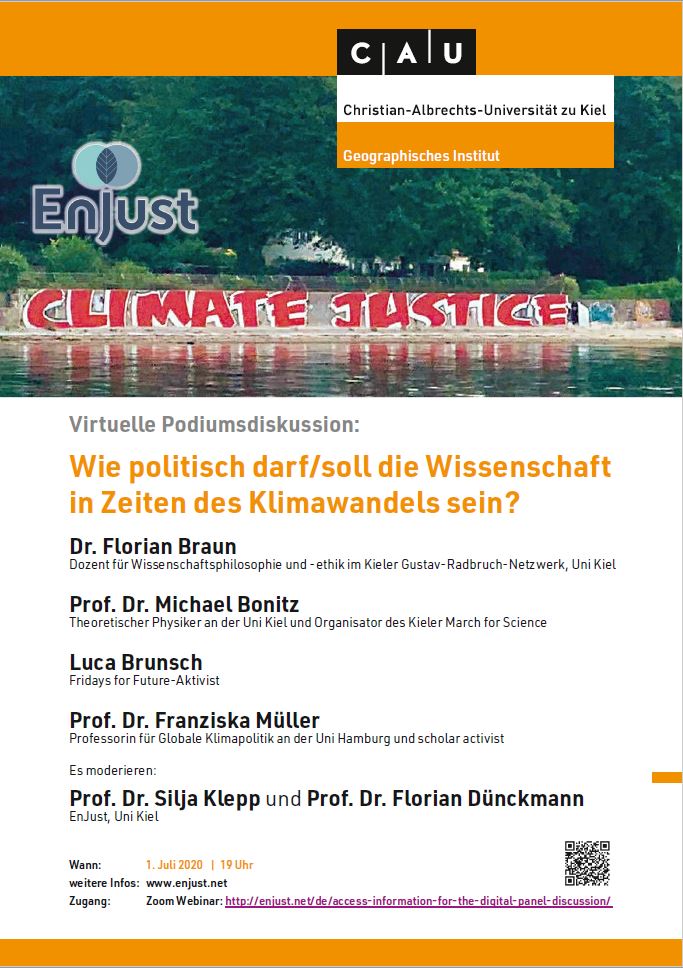
Organized by: EnJust Network for Environmental Justice
Where? Online Zoom Webinar – access link here
When? July 1, 2020, 7:00 p.m.
All welcome!
The EnJust Network for Environmental Justice (www.enjust.net) is planning an event on Wednesday, 01st of July on the topic “How political may/should science be in times of climate change? In a panel discussion with representatives from social and natural sciences, science theory and political activism we will discuss the role of science in the context of climate change and the current socio-ecological crisis.
Guests are:
Dr. Florian Braun: Lecturer for Philosophy and Ethics of Science in the Kiel Gustav Radbruch Network
Prof. Dr. Michael Bonitz: Theoretical physicist at Kiel University and organiser of the Kiel March for Science
Luca Brunsch: Fridays for Future activist
Prof. Dr. Franziska Müller: Professor for Global Climate Policy at the University of Hamburg and scholar activist
Moderating it: Prof. Silja Klepp and Prof. Florian Dünckmann, EnJust, Kiel University
One of the triggers for this event was our impression that the perception and role of science in Germany has changed significantly in recent years, particularly as a result of the climate debate. There are many different perspectives and open questions among scientists and non-scientists on this relationship between science, politics and society. This event will discuss four main topics:
1) What is the relationship between science and society? Should science be committed to strict political neutrality? To what extent should scientists be involved in political debates and take a stand?
2) How can we discuss the limits of scientific knowledge without weakening the social role of science? When we address the existing power structures in the scientific system, do we play into the hands of those who want to relativize unwelcome scientific findings?
3) What different scientific self-understandings exist in the individual disciplines? What might a new scientific paradigm of interdisciplinarity look like and how could it be shaped in concrete terms?
4) To what extent must well-established scientific practices (e.g. research and congress trips) be reconsidered in view of the challenges of climate change?
The event language will be German.

